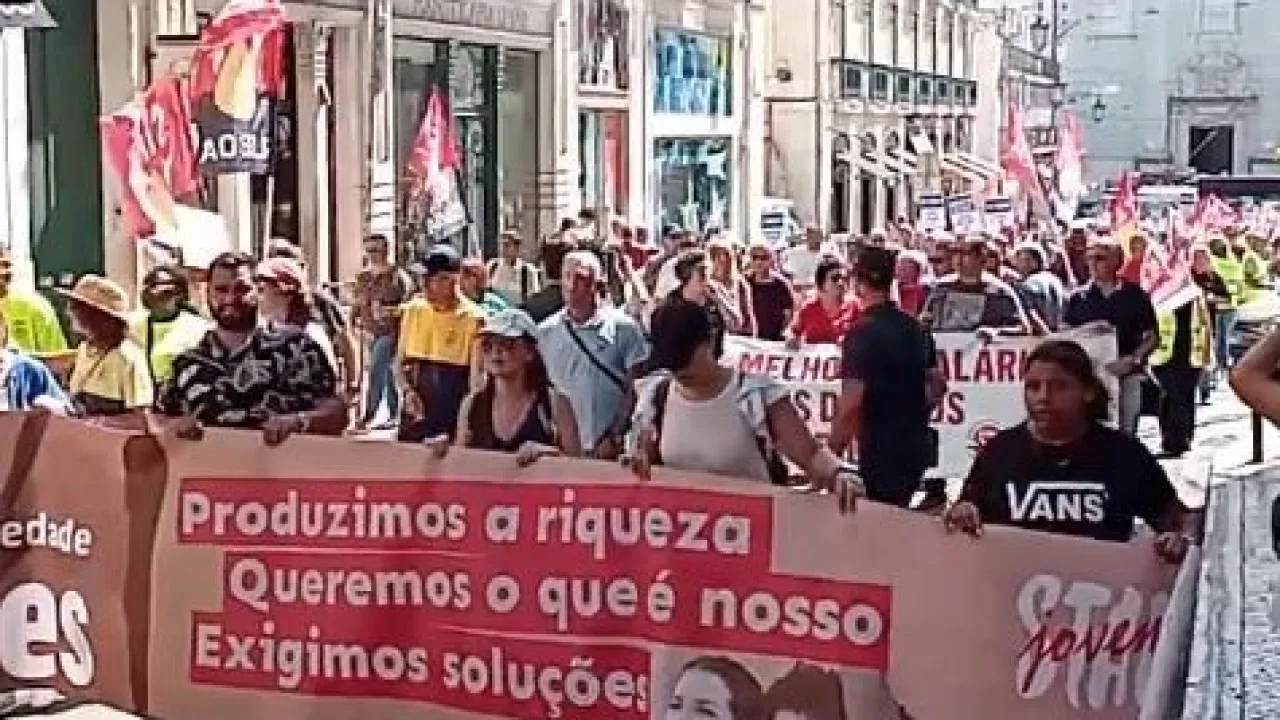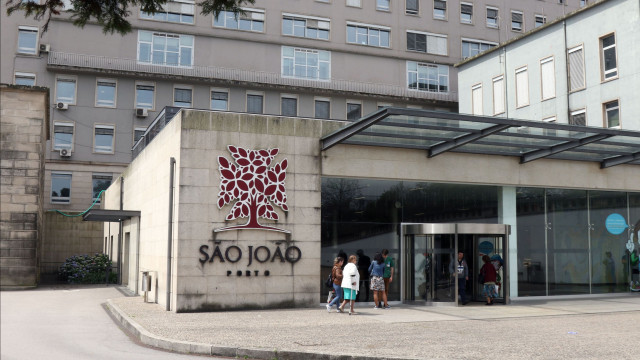
Portugal has the highest housing prices in Europe. The OECD [Organization for Economic Cooperation and Development] recently identified Portugal as the country with the least access to housing, underscoring the importance of demonstrating on the streets against government options from PS, PSD, and CDS that seem unaddressed to tackling the housing crisis,” stated Diogo Machado, a 24-year-old participant in the Casa para Viver protest in Lisbon.
Speaking at the end of the march, which began at Largo de Camões and concluded at Arco da Rua Augusta, passing through the tourist district of Baixa, Machado emphasized that under the current PSD/CDS-PP government, “house prices rose in the first quarter of the year more than they have for many years.”
“We can’t endure these housing costs,” he reiterated.
Leonor Heitor, a 21-year-old who lives in Lisbon but studies in the Algarve, questioned, “How is it sustainable to live in a country where rent costs equal the minimum wage?”
For Heitor, it’s crucial to lower rents and introduce local accommodation regulations, as well as urban development interventions, by rehabilitating the many unoccupied buildings to address the issue of people lacking affordable housing.
During the protest, chants such as “April demands homes to live in,” “housing is for living, not for speculation,” and “lower rents, raise salaries” were heard.
“We’re tired of choosing between paying rent or eating,” protested the hundreds advocating for housing rights.
The protest also saw participation from Lisbon region neighborhoods, including Mocho and Talude in Loures municipality, where residents complained about being at risk of eviction from illegally constructed homes referred to as shanties.
Living in Bairro do Talude, where approximately 100 families reside, Marlise António utilized the protest in Lisbon to voice concerns about the planned demolition of her shanty, presenting a notice received on Friday from the Loures municipal council. She expressed fears of being left homeless.
“We all wish for a place to rent, but our salaries don’t suffice. The minimum salary isn’t enough. Renting a place costs over 800 euros. If our salary is 800, how do we pay rent?” she questioned.
Former independent MP Helena Roseta, the architect behind the first Housing Basic Law approved in 2019, also participated as a citizen advocating for the constitutional right to housing.
“A significant portion of young Portuguese are denied the right to housing, and when an entire generation lacks housing rights, we jeopardize the future. The government must understand this; it hasn’t solved the problem entirely. While some positive measures have been taken, more needs to be done,” said architect Helena Roseta.
Roseta argued that the country can’t maintain current purchase and rental prices, nor allow rentals “without contracts, receipts, or documentation.”
“Rights are not granted but fought for; we are facing a battle that’s both national and transnational… It’s impossible to balance limited Portuguese territorial supply with unlimited transnational and multinational demand,” Helena Roseta remarked, advocating for a new housing rental code.
At the end of the protest near Arco da Rua Augusta, André Escoval, a spokesperson for Casa para Viver and a member of the Porta a Porta movement, highlighted the “great force” displayed as people mobilized “against one of the nation’s major issues, the denial of housing rights.” He noted that protests occurred in 11 other cities, with another planned for Sunday in Porto.
“This fight will continue. The large numbers participating today sent a message to the government that they’ll be back on the streets right after summer. The 2026 State Budget must unequivocally prioritize housing,” stated André Escoval, pointing to the need for immediate actions such as rent regulation and extending contract durations.




